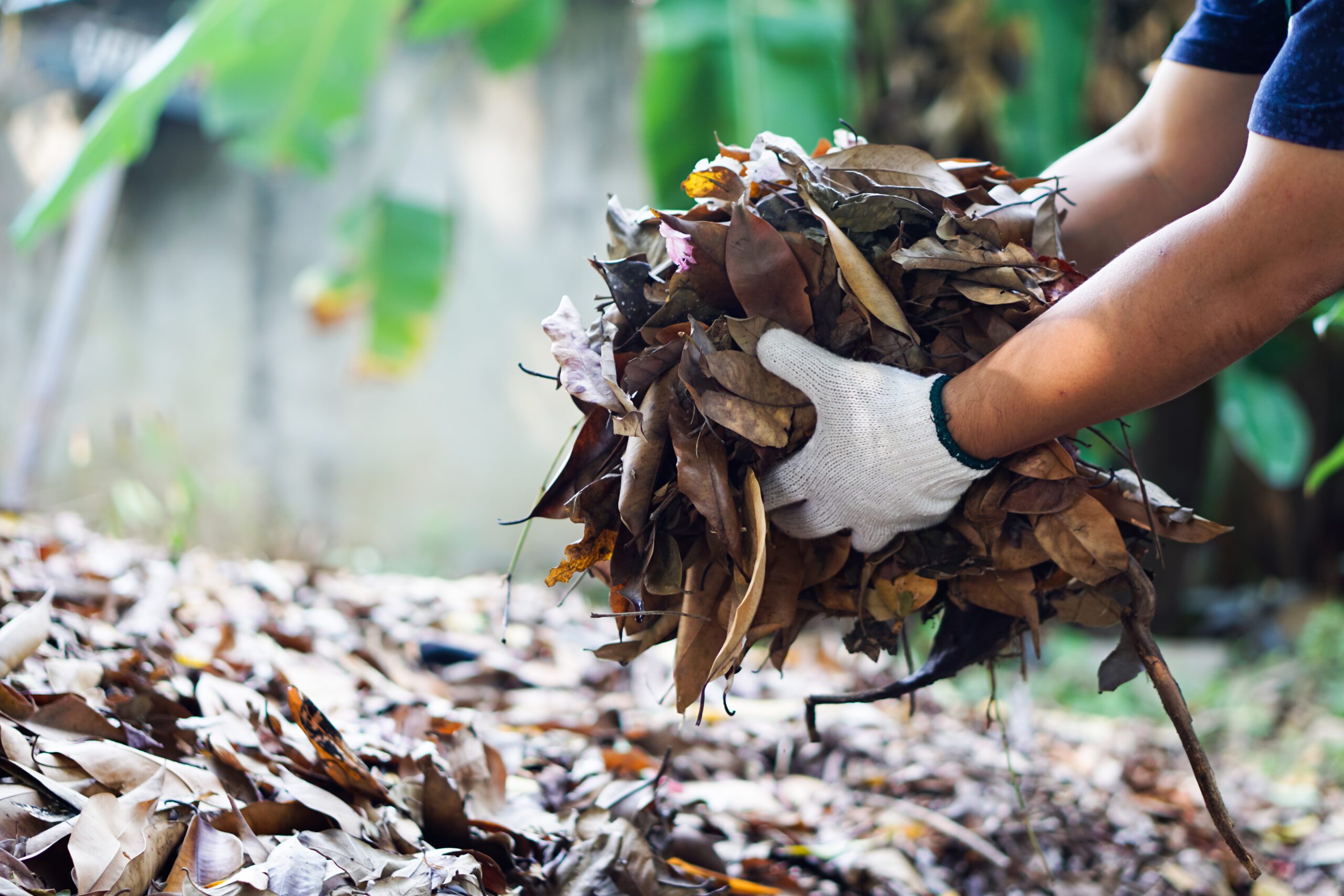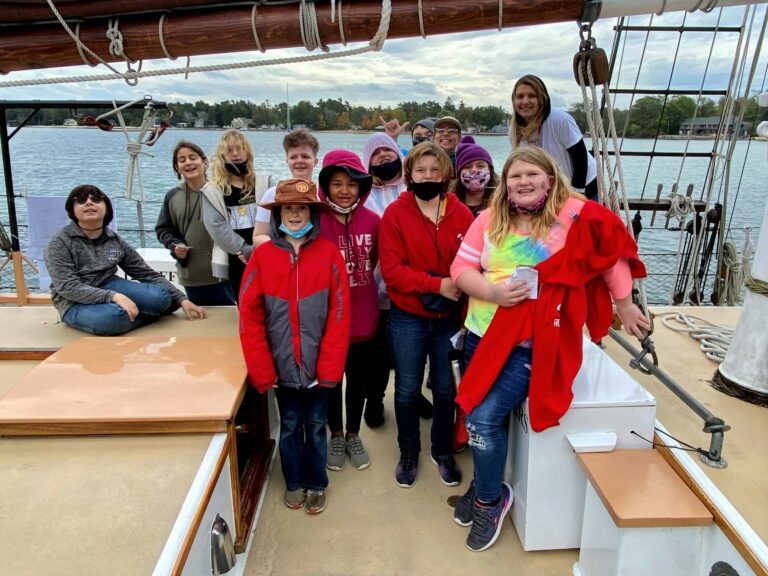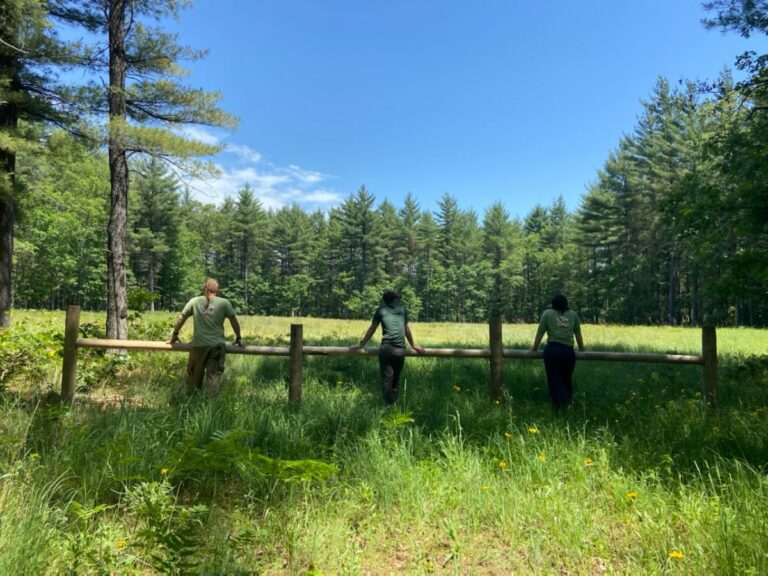Written by: Jo Jaczkowski, SEEDS Compost Manager
Organic waste is one of the largest generators of methane when it is sent to landfills. Composting, as an alternative to throwing your leftover food in the trash, is something you can do as a lover of the outdoors. By composting, you can reduce greenhouse gas emissions and also contribute to healthier vegetation, more stable soils, and beautification of our landscapes. But how? We hope this short informative document shares with you the importance of Composting while enjoying parks, public lands, and even in your own home!
THE WHY
At present, our landfills continue to fill at unprecedented rates with organic materials that can be composted. Studies have found that 35% of landfill volume is taken up by food scraps and other organic matter (i.e. lawn clippings and biomass), an additional 20-25% is taken up by paper and cardboard products. This brings the total compostable materials in landfills to over 50% by volume (“Food Waste and Recovery”).
Landfilling organic materials causes anaerobic (without oxygen) decomposition and the creation of methane gas. Methane gas is 80 times worse than Carbon Dioxide in terms of greenhouse gas emissions (“What’s the deal with methane?”). While release of methane via landfills is not the only issue, it is certainly an alarming one. The secondary impact is the locking away of our natural resources into these landfills rather than returning them to the soils.
Between these two issues, composting comes as a solution and a way to also increase the health of everyday park users like yourself!
HOW DOES IT WORK?
Composting is an aerobic (with oxygen) decomposition process that breaks down organic materials into a nutrient rich hummus. So don’t think trash, think treasure!
While composting is a fairly intuitive process of decomposition there is a lot of biological activity and chemistry going on in each and every pile. Just some of the small life forms we can find include worms, centipedes, slugs, beetles and millions of bacteria! Life in a pile is always teaming with decomposition helpers, we just need to feed them well.
Processing food scraps through composting provides a nutrient rich hummus which can be applied to soils. When applied to soils and gardens it increases the water holding capacity and the nutrient availability within our soils. This means less watering and healthier plants which results in tastier, more nutrient dense food!
WHAT YOU CAN DO TO HELP
Where parks, hiking trails, and many campgrounds do not offer composting dropoff sites, you still have the opportunity to bring your scraps home rather than place them into the landfill. If you compost at home or have a community composting site, simply bring a bucket, sealable container, or plastic zipper bag to dispose of organic matter at your campsite and pack it out, compost it at home, and reduce total input into our landfills.
Performing most of your food preparation at home can reduce your wastes. Planning for and preparing meals or ingredients ahead of time can remove the need to have a compost bucket on site! At home you can also freeze scraps to be disposed of at a later date.
Performing most of your food preparation at home can reduce your wastes. Planning for and preparing meals or ingredients ahead of time can remove the need to have a compost bucket on site! At home, you can also freeze scraps to be disposed of at a later date.
WHAT IF I’M IN THE BACKCOUNTRY?
Know how to dispose of your waste properly before you go. Many public facilities will advise on how to do so. Many times this information can be found on specific park websites, but you can also contact park or forest staff to plan ahead, it is as simple as that. Planning meals and identifying how you will dispose of your food scraps ahead of time will save you the headache of asking “What do I do?” in the midst of your outdoor adventure.
When entering the backcountry it is ideal to pack out the same items you came in with. This may include carrying out your trash and organic matter in a smell proof bag. These containers can be handled for bear and animal proofing as you would your consumable food items. Something you might not think about is the potential introduction of non-native species by leaving food scraps in the woods. Fruit and veggie seeds can propagate if left in the forest.
For fishermen, if you are harvesting and cleaning fish in the wild, follow local policies for disposal. If you are fishing using earthworms, be sure to pack these home with you. These earthworms are not native to Michigan and can be damaging to forest ecosystems. Take them home and put them in your compost!
By eating your food, you’re reducing your pack weight. With planning you can minimize how much you have to pack out! You can assist in keeping our outdoors pristine and clean for future generations. The backcountry is protected by those who recreate in it; you are a part of that solution.
COMPOST AS A SOIL SOLUTION
Composting is not just for gardens. Compost can assist with stormwater management and erosion mitigation. Compost can be used to amend soils and increase the ability for storm water to drain more efficiently and at a more sustainable pace. As soils degrade over time or are built on they lose Organic Matter (OM). This OM has a direct link to the ability of soils to hold onto water based by percentage.
Increasing the OM just 5 percent in soils for urban communities can see an increase in water holding capacity by 96,000 gallons of water per acre (Gould). Not only does it assist in slowing flooding, but also supports the health of our lawns and parks while boosting the ability of vegetation to perform photosynthesis and remove carbon dioxide from our atmosphere.
ADDITIONAL RESOURCES
For additional information on composting efforts and learning opportunities, please visit the following statewide partners.
- Environment, Great Lakes, Energy (EGLE) – https://www.michigan.gov/egle
- Michigan Recycling Coalition (MRC) – https://michiganrecycles.org/
About the Author: Jo Jaczkowski, SEEDS Compost Manager

WORKS CITED
- Gould, Charles M. “Compost increases the water holding capacity of droughty soils.” MSU College of Agriculture and Natural Resources, 16 October 2015, https://www.canr.msu.edu/news/compost_increases_the_water_holding_capacity_of_droughty_soils. Accessed 13 July 2023.
- “Materials Management – Composting – Food Waste and Recovery.” State of Michigan, https://www.michigan.gov/egle/about/organization/materials-management/composting/food-waste. Accessed 13 July 2023.
- “What’s the deal with methane?” UNEP, 18 October 2022, https://www.unep.org/news-and-stories/video/whats-deal-methane. Accessed 13 July 2023.





